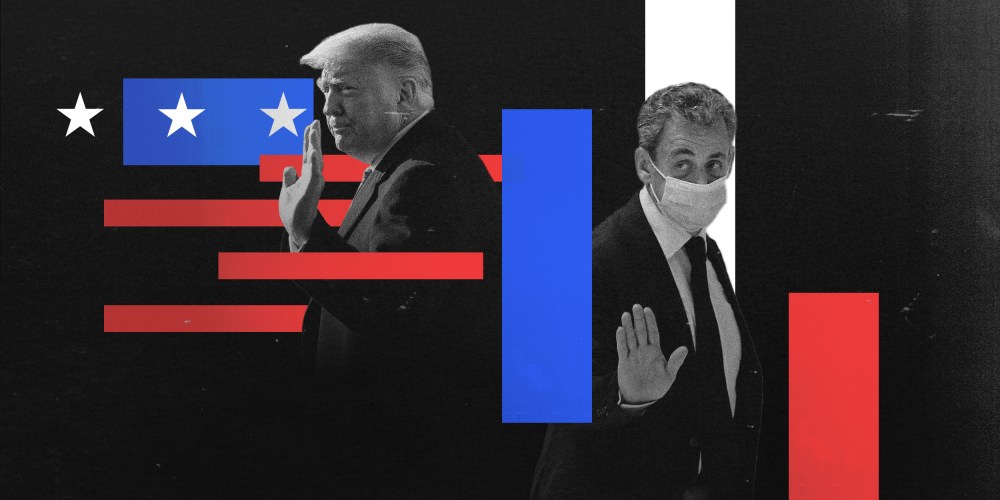A former president, still popular among conservatives, faces jail time after being convicted on charges of corruption and influence peddling. It’s a huge blow for a figure with near universal name recognition, who was hoping for a political comeback in the near future.
Of course, I’m talking about Nicolas Sarkozy, the former president of France, whose sentencing Monday was a shock to observers in Paris and Washington alike. But if you think that last paragraph might be of interest to another former president, you’d be absolutely right. Sarkozy’s fate is a reminder that even those who seem untouchable can still be made to answer to the rule of law.

Much like former President Donald Trump’s, many of Sarkozy’s legal troubles were self-imposed. Sarkozy was charged with offering a bribe to a magistrate, dangling a potential high-ranking position in exchange for information about a case pending against him.
Sarkozy was accused of taking illegal campaign cash from the heir to the L’Oréal fortune back in 2007 — he was cleared of those charges. But in seeking out information about his case, he was only digging himself in deeper, setting up new acts of corruption as he defended himself against corruption charges.
The irony is rich, and it makes for a solid comparison to Trump’s foibles. While he was in office, Trump’s efforts to discredit the investigation into his campaign’s ties to Russia instead wound up getting him impeached — it turns out sending your personal attorney to dig up information isn’t a bright idea in either the U.S. or France. Sarkozy even has his own version of Rudy Giuliani in the form of his friend Thierry Herzog, his attorney at the time.
In seeking out information about his case, he was only digging himself in deeper, setting up new acts of corruption as he defended himself against corruption charges.
It’s worth noting that Sarkozy was already out of office at the time of the alleged offer — he left office in 2012; the solicitation of info was in 2014. That makes Sarkozy’s conviction even more of a warning for Trump than the troubles Israeli Prime Minister Benjamin Netanyahu faces. Ahead of an unprecedented fourth election in four years, Netanyahu is defending himself in three separate cases against charges of corruption.
Netanyahu has taken a page from Trump’s book, claiming that the investigations are a “witch hunt.” But there are no signs that Sarkozy’s or Netanyahu’s legal troubles are hit jobs from an opposing political party seeking vengeance, like the charges against Yulia Tymoshenko in Ukraine in 2011 or those facing Aung San Suu Kyi in Myanmar after a military coup this year. For all of their systems’ particular detriments, France and Israel rank relatively high on Freedom House’s Freedom in the World index.
Instead, both instances appear to be the rule of law’s playing out despite the defendants’ power and support. Which is exactly how it should be. It’s the opposite of what Trump has advocated for years, as he called repeatedly for his political opponents to be investigated and jailed for the crime of standing in his way.













